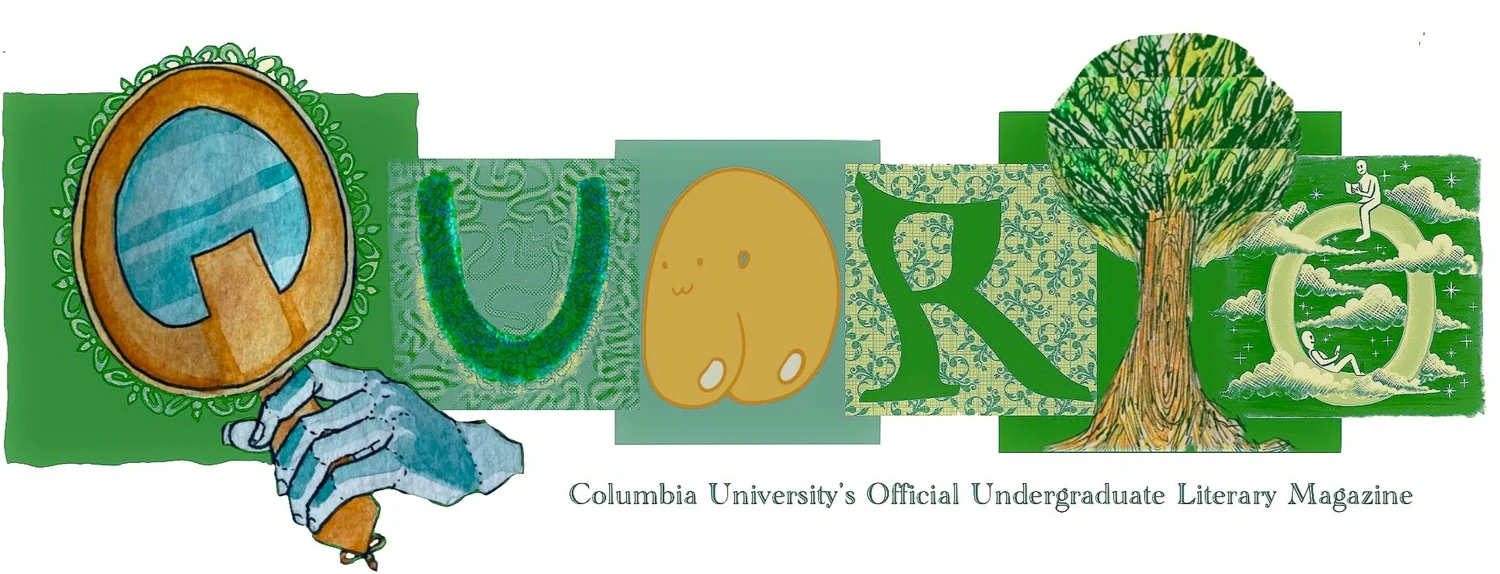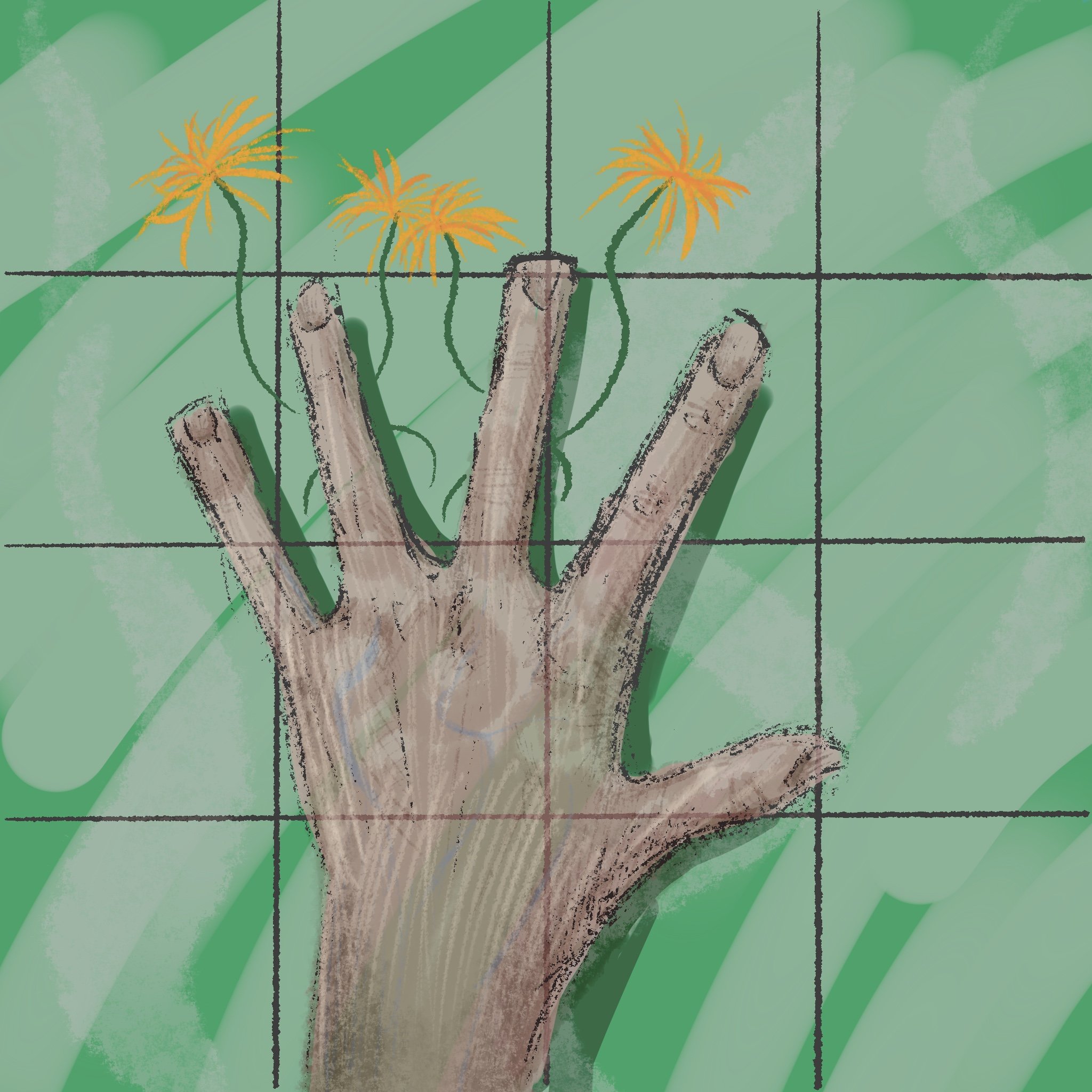This piece was originally published in Quarto’s 2022 Spring Print.
Content warning for drug abuse, death, and grief
How to Comprehend an Absence Part I.
First, place your hand against the tile wall while you take a warm shower, and spread your fingers wide apart.
Look between them.
Then check your mailbox religiously at first, then later become ashamed when you feel your arm jerk with the keys to check the copper slot at your apartment entrance.
I had opened and closed it once a day.
A metal door with a number and a name, then two walls and a back.
After you memorize what the inside looks like, you stop. But then on your birthday three years later you humor the idea again.
There's a key and an opening. IKEA Magazine, and your roommate’s New Yorker subscription.
Then three walls, a floor and a roof.
Metal shutting.
Then you decide to imagine what this person might send you if they could. You imagine small things, half-wilted. It takes tremendous energy to mail from underground. And your options are limited.
And so, in October you open your mailbox and on the square metal floor there is a bundle of four yellow dandelions. There is a small pile of dirt, beads of dry earth under them. They are different heights, one still has it’s oval serrated leaf, and they are bunched together by the stem of the longest one. They look like they’ve been sat on. The green is partly browning. The yellow edges on orange. But someone who is dead remembered your birthday, which is the fourth, and he also died on a fourth, and he knows you remember this and noticed it, so he sends you four flowers which you also notice. The flowers are tired and flopped to the metal bottom of the mailbox. They fit in there perfectly like a stage. They are limp. But you have received mail from someone who is absent, and they are beautiful.
Part II.
A plastic bag full of empty orange bottles.
I cannot talk in the second person anymore, as much as I don’t want this to be mine —
and I want it to be yours
— it is mine and it cannot be yours.
It is what my body remembers.
From the back tan leather seat of my mom’s second-hand BMW, I grab a crinkled CVS bag. It feels more thin than usual. And it is filled with empty orange pill bottles to the top.
I look down inside.
The orange orbs fall over each other like a litter of blind puppies. They are empty. They are clear and they are orange. In the light, the bottles are dirty yellow.
Full of empty, the bag takes on an undefinable shape.
My hands become lumpy too. My doctor gasps and doesn’t know what she is seeing.
Can I take a picture?
She asks, to make it more real, her eyes alone do not understand. In 2D might help to feel what it is full of.
My grandma says the same thing happened to her when her dad died. She tells me he collapsed
from a heart attack in the street. Mine collapsed from sleep into more sleep. From something to nothing, or vice versa maybe.
My grandma knew these hives.
Soon the lumps are all over my body and they edge on orange to red. They itch, it started on my back, and the morning after the funeral it climbs up to my face. I don’t know what to call them so I tell the doctor I have hives. She is very upset with my misuse of vocabulary.
These are not hives. Hives have a perfectly circular shape. Yours are oval and irregular.
So what should I call it? She can’t diagnose it. It seems the word for my illness was nothing.
This would have been closer.
Stress is what she writes on the slip, she gives me orange pill bottles to stop it, to stop these shapes, to stop my lumpy form. She fills a pill bottle to treat what has misshapen me, thin, brimming, lopsided, discolored, what are these shapes, me, filled with absence.
Tristen Pasternak is a member of the Barnard class of 2022. Tristen is from Philadelphia and she currently majors in English and Creative Writing. After graduation, she hopes to forage mushrooms in Central Park and the rest will go from there.

